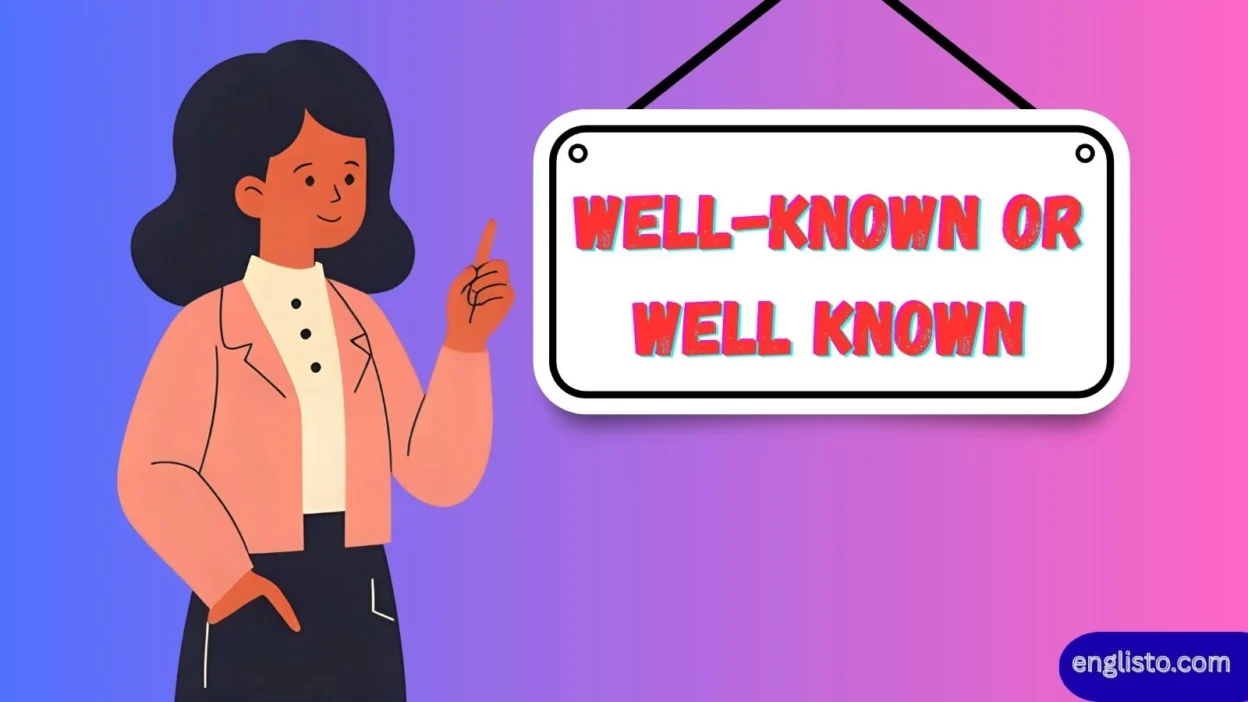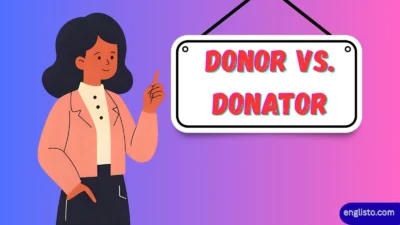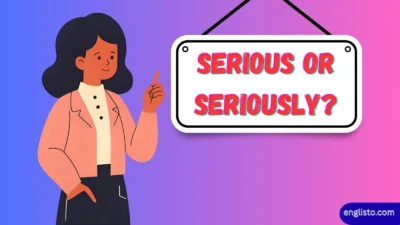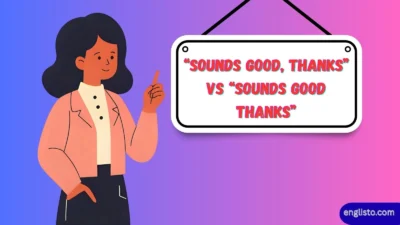Language is full of little details that can trip up even the most seasoned writers. One such detail is the correct use of Well-known or Well known.” At first glance, the difference looks minor—a simple hyphen—but in English grammar, that tiny dash makes a world of difference.
In this article, we’ll dive deep into the meanings, grammar rules, usage examples, history, and professional style guidelines surrounding these two forms. We’ll explore how the Oxford English Dictionary (OED), grammar experts, and modern usage data distinguish the two. By the end, you’ll know exactly when to hyphenate, when not to, and how to avoid the most common mistakes.
What does the word “well-known” mean?
At its core, “well-known” means widely recognized, popular, or familiar. Dictionaries like the OED describe it as an adjective that modifies a noun.
- Correct example: She’s a well-known author in academic circles.
- Incorrect example: She’s well known author in academic circles.
The hyphen acts as a grammatical glue, joining “well” (an adverb) and “known” (a past participle) into a single descriptive unit. Without it, the phrase may cause momentary confusion.
Here’s a breakdown of meanings and contexts:
| Form | Part of Speech | Example Sentence | Meaning in Context |
| Well-known | Adjective | A well-known landmark in Paris. | Familiar or widely recognized. |
| Well known | Predicate adjective (after verb) | The landmark is well known in Paris. | Acknowledged, recognized. |
Quick Tip: If “well-known” comes before a noun, use the hyphen. If it comes after a verb (is/was/seems/etc.), don’t hyphenate.
Read More: Truely or Truly: The Correct Spelling Explained
How common is the word “well-known”?
The frequency of “well-known” in English is surprisingly high. Modern corpora (like COCA and BNC) show that it appears 10–15 times per million words in written English, making it a staple in both formal and informal writing.
- In literature: “a well-known figure in the town” often appears in novels.
- In daily conversation: people casually say, “Oh, that’s well known.”
- In publishing: journals and newspapers favor the hyphenated form when used attributively.
Usage trends
| Form | Common in… | Frequency Trend | Example |
| Well-known | Books, articles, professional writing | Stable, consistent | A well-known scientist spoke at the event. |
| Well known | Conversations, relaxed writing | Slightly less frequent | It’s well known that he loves football. |
Noun Form: “Well Known”
Interestingly, “Well Known” can also appear as a noun phrase—although less common, it’s grammatically valid in certain contexts.
- Correct usage: She became a “Well Known” in the industry overnight.
- Incorrect usage: She became a well-known in the industry overnight. (Here, it needs capitalization and a clear noun reference.)
Examples in practice:
- His achievements transformed him into a Well Known among his peers.
- The artist’s reputation gave her recognition as a Well Known figure.
When used this way, consistency in capitalization matters. Think of it as a title, not just a description.
Adjective Form: “Well-known”
The most common form is adjectival. The hyphen ensures clarity when the word modifies a noun.
- Correct: The hotel is a well-known tourist attraction.
- Incorrect: The hotel is a well known tourist attraction.
Why the hyphen matters:
- With hyphen: Clear, precise, professional.
- Without hyphen: Risk of confusion, looks sloppy in formal writing.
Some famous real-world cases:
- A well-known philanthropist donated millions to the cause.
- She married a well-known actor from Hollywood.
Verb Form: “Well Known”
In rare cases, the phrase functions like a verb-like expression when tied to recognition.
- The singer became well known for her unique voice.
- The scientist’s discoveries made him well known across the globe.
Notice how the hyphen disappears when used after the verb.
Incorrect usage:
- The singer became well-known for her unique voice.
This is one of the most common mistakes even professional writers make.
The Basics of Hyphenation: When and Why
Hyphens exist to create clarity in writing. Without them, meanings can blur.
Examples beyond “well-known”:
| Compound Adjective | Correct Usage | Wrong Usage |
| State-of-the-art | State-of-the-art technology | State of the art technology |
| Chocolate-covered | Chocolate-covered peanuts | Chocolate covered peanuts |
| Large-scale | Large-scale production | Large scale production |
Rule of Thumb: Use a hyphen when two or more words work together to modify a noun.
Breaking Down “Well-known” vs. “Well known”
Let’s put it in plain terms:
- Well-known (hyphenated) = Adjective before a noun.
- Well known (no hyphen) = Appears after a verb.
| Position in Sentence | Correct Form | Example |
| Before a noun | Well-known | A well-known politician visited town. |
| After a verb | Well known | The politician is well known in town. |
The Role of Hyphens in English Grammar
Hyphens aren’t just decoration—they shape meaning. Consider these differences:
- Three-year-old child vs. Three year old child
- Re-sign the petition vs. Resign the petition
They prevent ambiguity and keep writing polished. In the case of “well-known,” the hyphen ensures readers immediately understand that it’s a compound adjective.
Examples in Practice: “Well-known” in Sentences
Here’s a contrast table to highlight real-life usage:
| Hyphenated (Well-known) | Non-Hyphenated (Well known) |
| A well-known brand in fashion. | The brand is well known in fashion. |
| She’s a well-known expert in linguistics. | She is well known for her linguistic research. |
| They visited a well-known tourist spot. | The tourist spot is well known worldwide. |
Styling for Professionals: AP Style Hyphenation Guidelines
Journalism and publishing houses often follow AP Stylebook rules:
- Use hyphens in compound modifiers before a noun.
- Drop the hyphen if the phrase follows the verb.
Examples from AP guidelines:
- A well-known author signed the books.
- The author is well known for her memoirs.
This distinction is especially important in professional communication, resumes, and media publications.
Capitalization Conventions with “Well-known”
In titles and headings, the rules vary depending on style (APA, MLA, Chicago, AP).
- Title Case: The Secrets of Well-Known Entrepreneurs
- Sentence Case: The secrets of well-known entrepreneurs
When “well-known” appears in headings, treat it like a regular adjective. Only capitalize if the style guide requires it.
Synonyms of “Well-Known”: Expanding Your Lexicon
Sometimes “well-known” can feel overused. Here are alternatives:
| Synonym | Nuance / Tone | Example |
| Famous | Widely recognized, popular | A famous actor |
| Renowned | Distinguished, respected | A renowned professor |
| Celebrated | Honored, admired | A celebrated poet |
| Popular | Commonly liked, familiar | A popular singer |
| Acclaimed | Critically praised | An acclaimed novel |
Using synonyms adds variety and sophistication to your writing.
UK and US English Consistency
Both UK and US English follow the same basic rule: hyphenate before a noun, no hyphen after a verb.
- UK Example: A well-known historian from Oxford.
- US Example: A well-known historian from Harvard.
Regional variations exist, but style guides encourage consistency across documents.
Importance of Adhering to Grammar Rules
Why does this matter? Because sloppy writing undermines clarity and professionalism.
- In a resume: Well known for leadership skills looks less polished than Well-known for leadership skills.
- In business writing: Clients expect precision. A misplaced hyphen can signal carelessness.
“Grammar is the logic of speech, even as logic is the grammar of reason.” – Richard Chenevix Trench
Clear, consistent usage shows respect for your readers and strengthens communication.
Conclusion
Navigating the nuances between “well-known” and “well known” is crucial for effective communication. The hyphen may seem small, but it enhances clarity, prevents ambiguity, and reflects professionalism.
- Use well-known before nouns.
- Use well known after verbs.
- Follow AP and grammar style guides for consistency.
- Remember, precision in language builds credibility.
Mastering this distinction ensures your writing is polished, professional, and easy to read.
FAQs
Q1: What does “well-known” mean?
It means something widely recognized, popular, or familiar—typically used as a descriptive adjective before a noun.
Q2: When do I use “well known” without a hyphen?
When it appears after a verb (is, was, seems). Example: The movie is well known worldwide.
Q3: Is “well known” ever a noun?
Yes, in rare cases as a capitalized noun phrase: He became Well Known in the music industry.
Q4: Do UK and US English differ in using “well-known”?
No, both use the same rule: hyphen before a noun, no hyphen after a verb.
Q5: What are synonyms for “well-known”?
Famous, renowned, celebrated, acclaimed, popular, notable, respected.



